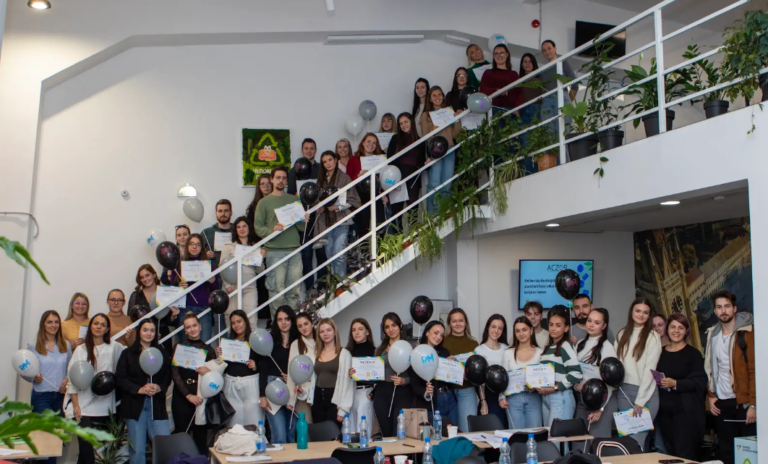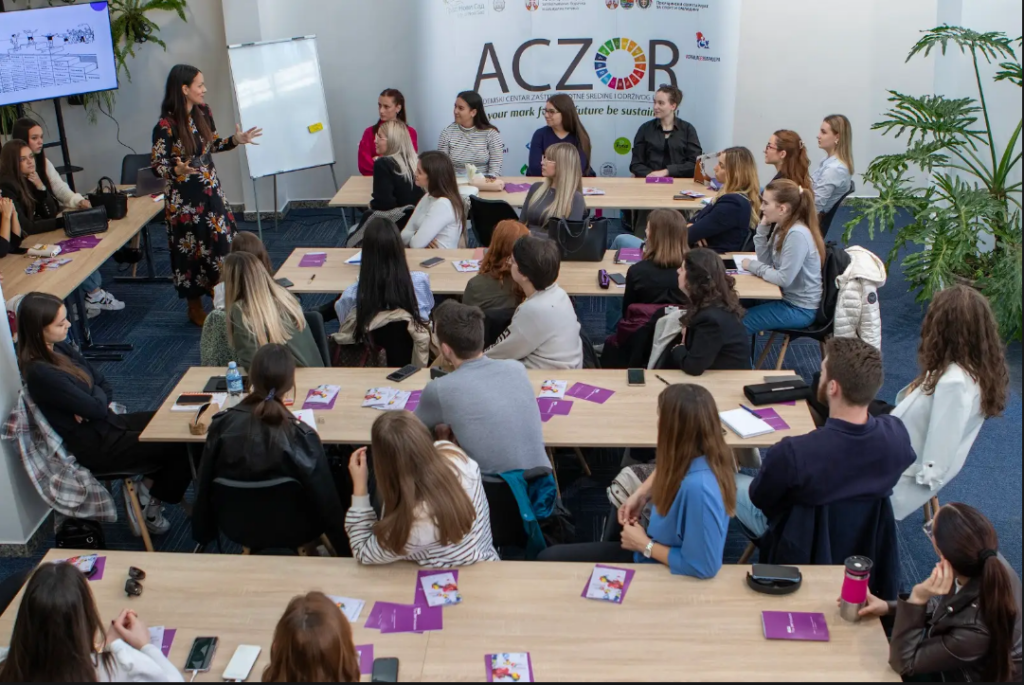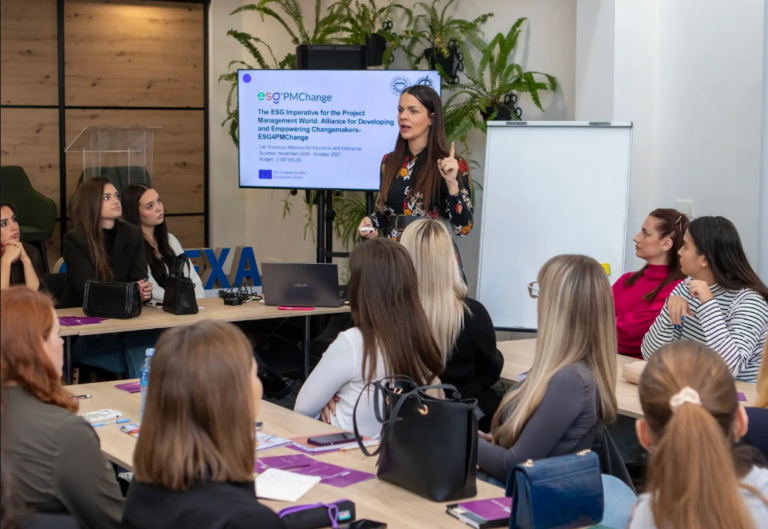
The PM²4EUfunds Training Academy 2024, part of the PM²4EUfunds Erasmus+ Jean Monnet Module, took place on November 2, 2024, at the ACZOR (Academic Center for Environmental Protection and Sustainable Development) in Novi Sad, Serbia. Organized by the Faculty of Technical Sciences at the University of Novi Sad (UNS), the event provided participants with the essential tools to effectively manage EU-funded projects using the PM² methodology. It also served as a valuable opportunity to address current and future skills gaps in ESG and sustainability within project management. 
The event attracted 43 participants from diverse academic backgrounds, including bachelor’s to PhD students from programs such as Engineering Management, Project Management, Environmental Engineering, and Industrial Engineering. Additionally, MBA students and professionals from the automotive sector attended.
Collaboration Between PM²4EUfunds and ESG4PMChange Projects
PM²4EUfunds project coordinator and lead module trainer, Professor Danijela Ćirić Lalić, highlighted the ESG4PMChange project as an example of an EU-funded project guided by the PM² methodology, emphasizing its value for successful project management of EU-funded projects. She also addressed existing and emerging skills gaps in the integration of ESG principles into project management, showcasing how the project is developing a new “ESG project management practitioner” profile, a comprehensive competency framework, an innovative digital learning ecosystem, and a pioneering micro-credentialing system. This made it clear to participants that the project aims to equip professionals with the necessary tools to meet EU sustainability standards, drive change in line with the EU Green Deal, and contribute to the United Nations Sustainable Development Goals.
This collaboration between the PM²4EUfunds and ESG4PMChange projects is a prime example of how the two initiatives complement each other and work together to showcase practical implementation. It expands participants’ horizons and provides them with the critical skills and insights necessary for the future of project management.


